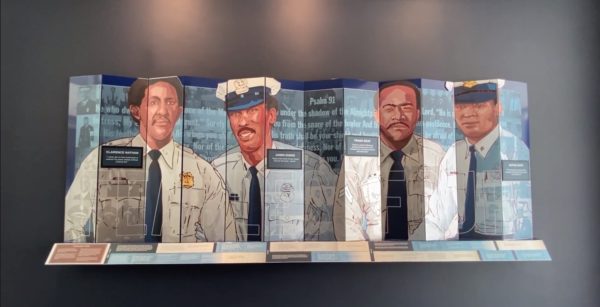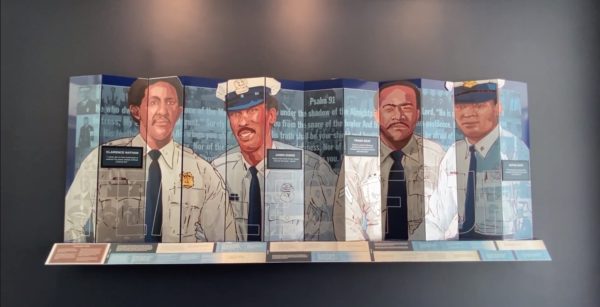‘We Weren’t Allowed to Arrest White People:’ Pioneering Tampa Officers Honored for Striking Blow Against Discrimination In Police Department
Four Black retired Tampa police officers have been honored by the city this month for blazing a trail against discrimination in the 1970s.
Gray, James Dukes, Clarence Nathan and Lewis Rufus — now known as the Fearless Four — filed a discrimination complaint in 1974 with the Equal Employment Opportunity Commission against the Tampa Police Department. This complaint would later make history, but the officers told Atlanta Black Star that the racism and intimidation some Black civilians felt from police officers also existed within the police department.
“I was in the hallway one day and I had a burglary detective come out of his pocket with photographs and he asked me if I knew any of these N-words. That cemented it for me,” explained Dukes. “Somebody had to do something about the way Black officers were treated. Why not us?
The men say they were not allowed promotions within the police department, and also did not have the same power as white officers within their communities.

“We weren’t allowed to arrest white people back then,” explained Lewis, who eventually retired at the rank of sergeant. “You could hold them, but you had to wait for a white officer to arrive and then explain to them what happened.”
The Fearless Four were among a long list of African-Americans who proudly wore a badge to serve their communities, but they said they didn’t always have the support of their police department.
“You would hear white officers come on the radio and use racial undertones. That was common practice at the department at that time,” Nathan said. “We were on the tail end of the civil rights movement, integration and segregation. So, I think a lot of it was carryover to how people responded but we were supposed to be in a different place in society. That was obviously not the case.”
One of the more pressing issues for these men and many other Black officers was the lack of opportunity. Each of the four said the Tampa Police Department did not give them opportunities to train or advance.
“The thing that bothered me more at that time was regardless of training you could not get promoted,” said Gray. “There was one Black officer that had more training hours that anyone in the police department that he paid for himself. He could not get promoted.”
New requirements eventually made it much harder for African-Americans to get into the police department.
“There was a lot of extra work that I had to do, going back to school and taking classes,” said Nathan, who eventually rose to lieutenant in the department. “Then when I got to be a supervisor I would read reports and say, ‘Wow, I didn’t write reports this bad.’ But see, we were condemned for our report writing while our white counterparts got a pass.”
The men’s federal complaint led to a two-year investigation before it was resolved in 1976.
“The city of Tampa and the police department, to avoid going to court, they reached a conciliation agreement with the department of equal opportunity, and by that it opened the doors for other minorities and those who came behind us,” explained Gray.
One by one, Black officers started seeing a change within their departments. Rules went into place to protect minorities and make sure they had a chance to move up the ladder — something the Fearless Four are being honored for more than 45 years later with a monument from the department they helped change.
“This is an immortal moment for us and one that’s going to be with us for a while,” said Dukes.
These men say they are grateful for Tampa’s mayor, Jane Castor, and Tampa Police Chief Brian Dugan. City leaders unveiled the monument to the Fearless Four on April 3. It will reside on the first floor of the downtown Tampa Police headquarters.
“We never envisioned what is happening now would happen. There’s a song that says, give me my flowers while I can smell them and while I can see the beauty that they bring,” said Gray. “Most people receive this type of honor when they can’t smell the flowers or see the beauty, and we all are fortunate to be able to smell the flowers in this and see the beauty. And be able to vocally discuss it with our children and grandchildren.”
Each of the Fearless Four told me that there are many other unnamed officers, both Black and white, who had part of the positive change they saw in the Tampa Police Department.

